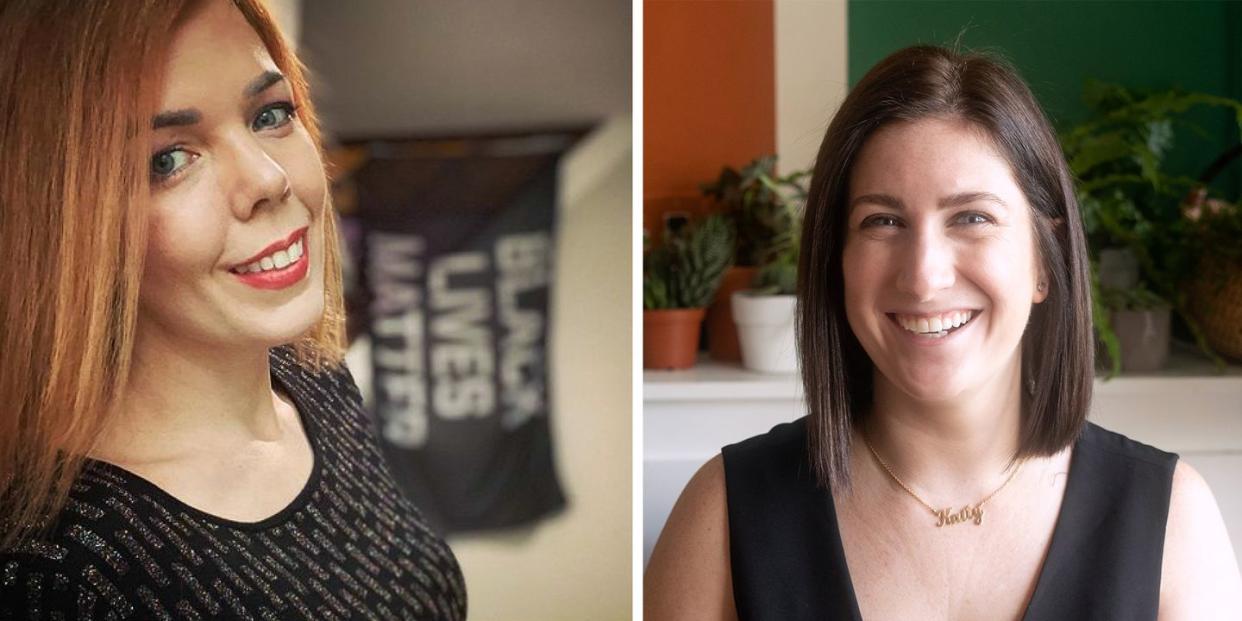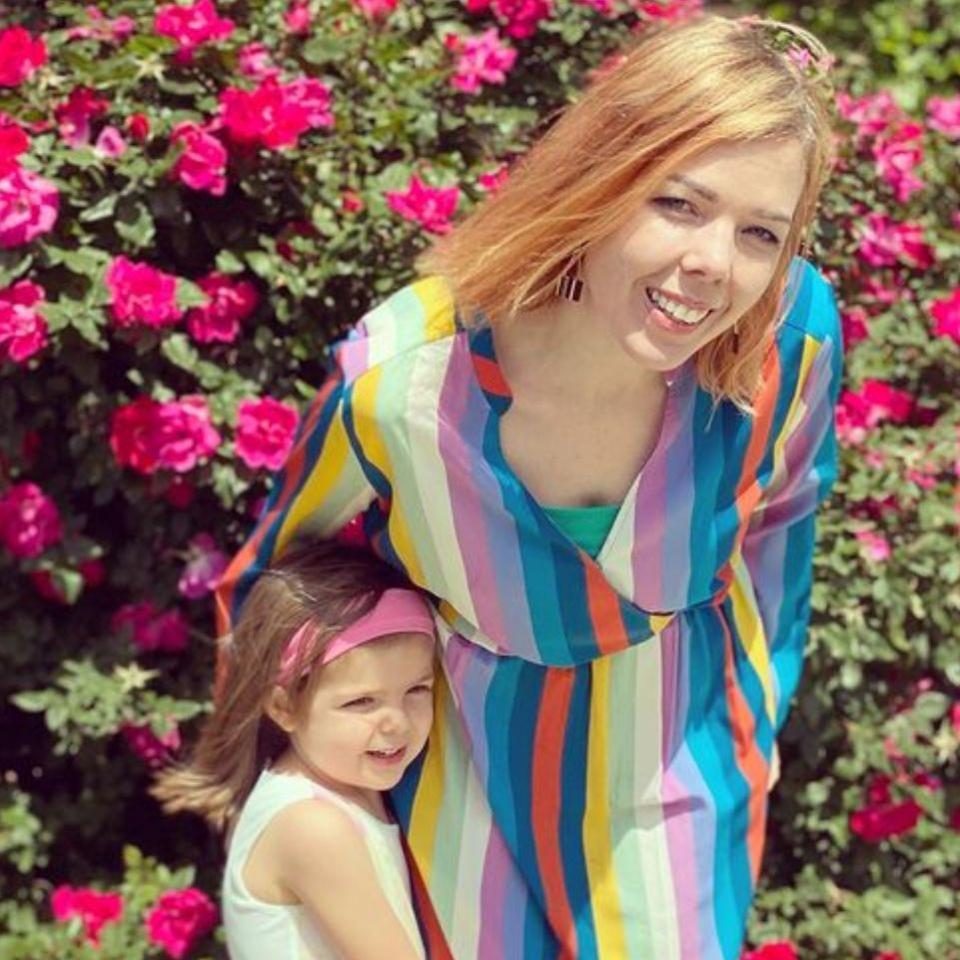“Living With Bipolar Isn’t At All Like What You Think”

When you hear that someone’s been diagnosed with bipolar disorder, you may have some questions and concerns. There’s also a good chance you’ll make some assumptions about what it’s like to live with the mental illness, many of which may not be based on facts. After all, thanks to misrepresentations of the disorder in the media—as well as the flippant use of the word bipolar to describe everything from the weather to someone who just changed their mind—there are plenty of myths about this mental health condition that are perpetuated.

Kaity Cash, a 29-year-old publicist in Sommerville, New Jersey, who was diagnosed with bipolar disorder in college, can relate. “People talk about depression and anxiety so much that those conditions have become normalized, yet there’s still such a stigma around bipolar,” she says. Melanie Carlson, a 39-year-old who was also diagnosed with bipolar in college agrees. “People often think that I’m always in one emotional extreme or another, or they look at me and say, ‘You have a job?’—like they’re shocked,” says Carlson, a social worker who’s also getting her Ph.D. in psychology. “There’s so much great activism happening around other mental health conditions, but we’ve still got a long way to go when it comes to bipolar.”
That’s why we sat down with Cash and Carlson. We wanted to understand the common misconceptions about bipolar disorder these women face—and to hear from them why these assumptions just aren’t true.
1. Flippantly using the word “bipolar” is offensive.
When Cash hears someone use this word as an adjective to describe someone who’s angry, or whose emotions are all over the place, she cringes—and frankly, she gets mad. “People throw out this word as if it means nothing, which is super frustrating and also really damaging to those of us who are living with the disorder,” she says. “For example, I heard people call former President Trump bipolar all the time when he’d rant and yell at people. Don’t get me wrong, I’m no fan of his—but let’s not label him or anyone bipolar if there’s not a diagnosis.”
2. People with bipolar disorder aren’t necessarily manic or unstable.
There’s often an assumption that someone with bipolar disorder lives in one extreme or another, continuously dealing with severe mood swings that include the highest highs (a.k.a. mania) and the lowest lows (depression). Yet while bipolar disorder can cause these extremes, it’s not a given. For example, Cash has bipolar II disorder, which means she’s never had a manic episode. Unlike bipolar I, which often includes episodes of both mania and depression, bipolar II is a subset in which people experience depressive episodes and hypomania (a revved-up state)—but never a full manic episode.

As for Carlson, she says she’s fielded everything from people assuming she wanders down the street talking to herself to others thinking she’s always erratic and unstable. “Even when I started my master’s degree in my early 30s, a nurse looked at my chart and said, ‘Wow, most people with bipolar don’t get it together until they’re 40,’” says Carlson. “These kinds of statements are so hurtful because they’re just not true.”
3. I’m allowed to be sad or angry—and it doesn’t mean I’m having an episode.
Can you imagine getting really upset or angry and not being able to express those emotions without someone thinking you’re having a mental breakdown? That happens to Cash, who says that it’s incredibly frustrating. “I have to be allowed to have feelings,” she says. “I’m allowed to be angry and not be in the middle of an episode.” Rather than assume someone with bipolar disorder is being irrational or not thinking clearly when they’re having big emotions, let that person vent just like you’d encourage any friend to do, says Cash. “When you make assumptions about my emotions, it shuts me down and makes me feel dismissed,” she adds.
4. I can (and do!) live a “normal” life.
When Cash was diagnosed with bipolar disorder after a major depressive episode that prompted a life-threatening drug overdose, her boyfriend at the time broke up with her shortly after—and he told her she’d never graduate from college. (She did.) A few years later, she had a boss who told her that because of her mental illness, she’d never be successful. (These days, she runs her own booming business as a publicist.) “It’s been nice to prove these people wrong,” she says. “Getting diagnosed with bipolar disorder isn’t exactly easy, and it can take a while to find your footing, but it doesn’t have to stop you from living fully.”
Finding the right mix of medication has also been a game-changer for Cash when it comes to keeping her symptoms under control. Still, she wishes there was less stigma around her disorder. “If I had to take medication for pain because of a broken arm, someone would be like, damn, you broke your arm. They’d get it. Well, it’s the same with my mental illness. At the end of the day, the imbalance in my brain is a physical thing.”
5. I want to talk about my condition with you, to help you understand the illness.
When you find out that a friend or loved one has bipolar disorder, you might be tempted to avoid that topic altogether. While everyone is different, many people who have the disease, appreciate it when others talk to them about their assumptions and ask questions about the mental health disorder, Cash and Carlson say.
“Bipolar is a part of my life, so I love it when friends ask me about it and want to understand what my experience has been,” says Carlson. “In fact, the more I talk about it with people, the more comfortable I feel talking about it—and the more comfortable others get, too.” Cash feels similarly. “When the people in my life take the time to understand this disorder, it puts them in a position to be super supportive. And isn’t that what all of us want?”
You Might Also Like

